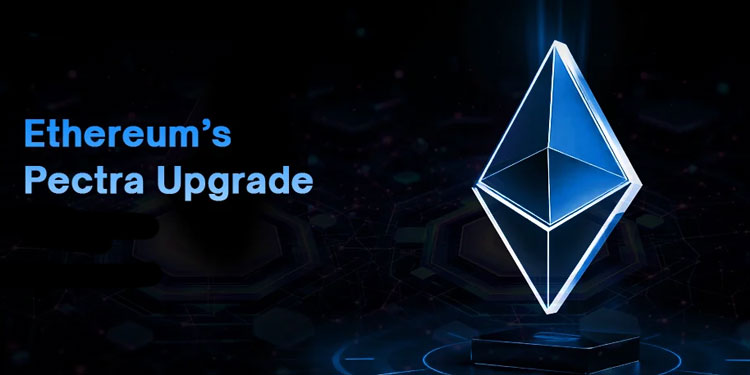The Ethereum ecosystem is on the brink of a significant transformation with the forthcoming Pectra upgrade, which merges the Prague and Electra upgrades. Scheduled for launch in the first quarter of 2025, this upgrade follows the Dencun upgrade of March 2024 and is poised to be one of the most substantial in Ethereum’s history. The Pectra upgrade will introduce several key Ethereum Improvement Proposals (EIPs) designed to address issues related to scalability, security, and user experience.
Key Ethereum Improvement Proposals (EIPs)
Central to the Pectra upgrade are several pivotal EIPs, including EIP-7702, EIP-3074, and EIP-7623. These proposals are expected to provide significant benefits to projects in the modular, chain abstraction, and AA wallet sectors, introducing groundbreaking changes to how Ethereum accounts operate and potentially revolutionizing wallet technology and user interactions with the blockchain.
EIP-7702, proposed by Vitalik Buterin, aims to allow existing externally owned accounts (EOAs) to execute any smart contract code. This change is expected to lead to the development of feature-rich and user-friendly wallets, facilitating the creation of complex applications. The proposal would enable EOAs to temporarily act as smart contract wallets during transactions, significantly enhancing their functionality and flexibility.
Another crucial proposal, EIP-3074, focuses on delegating control of EOAs to smart contracts, enabling more complex transaction schemes such as gas sponsorship and batch transactions. This change could make Ethereum more accessible to Web2 users and improve the overall user experience in decentralized finance (DeFi) transactions.
EIP-7623, also proposed by Buterin, addresses the issue of increasing calldata costs and aims to reduce block size while boosting overall Layer 2 performance. This proposal is anticipated to improve Ethereum’s efficiency, benefiting Layer 2 solutions and potentially lowering transaction costs.
New Standards and Enhancements
The Pectra upgrade also introduces the Ethereum Object Format (EOF), a new standard intended to improve how smart contracts are created and executed on the Ethereum network. EOF is expected to enhance security, reduce errors, and improve the overall efficiency of the Ethereum Virtual Machine (EVM).
Additionally, EIP-7594 (PeerDAS) will implement Data Availability Sampling (DAS) on Ethereum. This proposal is expected to significantly enhance the network’s capacity to support rollups and their data availability needs, potentially increasing the number of blob transactions that validators can attach to a block from three to 64 or more per block.
Addressing Network Stability
Another notable addition is EIP-7251, also known as ‘maxeb’, which aims to mitigate the risk of instability in the beacon chain as the staked ETH approaches or exceeds 50% of the network’s total. This proposal allows for the consolidation of multiple validators into fewer ‘super validators’, potentially streamlining operations without affecting monetary policy or rewards.
Community Reactions and Concerns
While the Pectra upgrade promises significant improvements, it has also sparked discussions within the Ethereum community. Concerns have been raised about the potential impact on network decentralization and validator diversity, particularly with regard to EIP-7251. Some community members worry that consolidating validators into ‘super validators’ could undermine the network’s decentralization, a core principle of blockchain technology.
Implications for the Broader Blockchain Industry
As the Ethereum ecosystem prepares for this major upgrade, the implications for the broader blockchain industry could be substantial. Enhancements to scalability, security, and user experience could potentially attract more users and developers to the Ethereum network, driving innovation and growth in decentralized applications and DeFi projects.
The Pectra upgrade represents a crucial step in Ethereum’s ongoing evolution, addressing key challenges and paving the way for a more efficient, secure, and user-friendly blockchain ecosystem. The upcoming changes are expected to bolster Ethereum’s position as a leading platform for decentralized applications and smart contracts.
Looking Ahead
As the launch date approaches, the blockchain community will be closely monitoring Ethereum to see how these changes unfold and impact the future of blockchain technology. The successful implementation of the Pectra upgrade could set a new standard for blockchain platforms, highlighting Ethereum’s commitment to continuous improvement and innovation. The upgrade is not just a technical enhancement but a significant milestone in the journey towards a more robust and scalable blockchain ecosystem.

